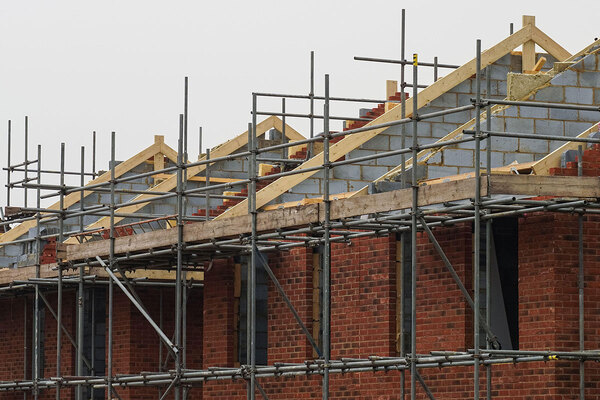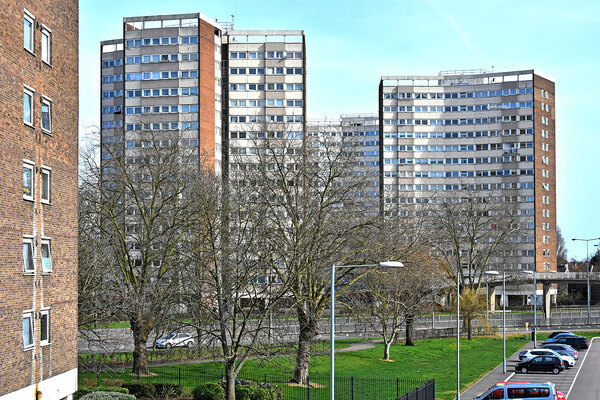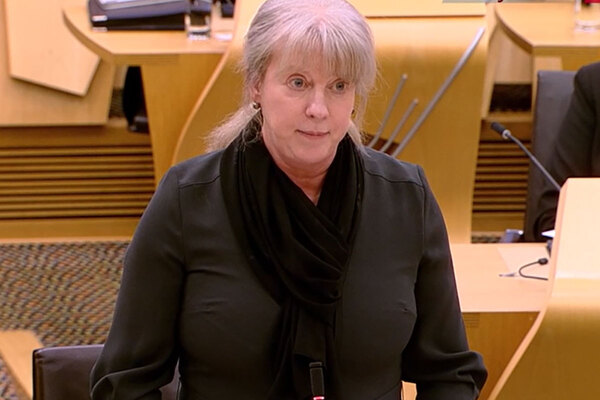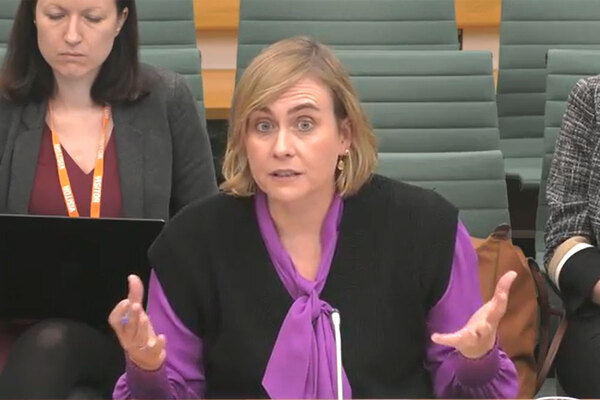You are viewing 1 of your 1 free articles
Government renews promise to tackle ‘fleecehold’ private estates
The government has vowed to tackle ‘fleecehold’ private housing estates, while a new mandatory code will be introduced to help homeowners deal with house builders over quality issues.

In its response to a wide-ranging report from the Competition and Markets Authority (CMA), the government said it accepted “in principle” the need for “enhanced consumer protection measures” for households living under private management arrangements on estates.
The arrangements often see homeowners locked into private maintenance contracts for communal areas on new build estates. Around four million people are reportedly thought to be living under the model.
The Ministry of Housing, Communities and Local Government (MHCLG) said today it was committed to tackling “unfair maintenance costs”.
The CMA’s report, published in February, raised concerns about estate management charges and the quality of some new build homes.
MHCLG said it agreed with the CMA that residential freeholders on housing estates with private management arrangements “too often receive poor-quality amenities and face unreasonable charges”.
A consultation will look at “the quality of private amenities, what amenities should be adopted by local authorities, and improved consumer protections”, the department said.
However the government stopped short of accepting a CMA recommendation that the mandatory adoption of public amenities on new housing estates is implemented.
Overall, the government agreed with the CMA’s finding that the housebuilding market is “not delivering well for consumers and has consistently failed to do so over successive decades”.
MHCLG’s response said: “Renters and homeowners face exploitation, unreasonable charges, inadequate systems of redress, and poor information with which to make informed decisions.”
The government said it was accepting the CMA’s recommendation to bring forward a new consumer code for house builders and a New Homes Ombudsman service that will “empower homeowners to rightly challenge developers for any quality issues they face in their home”.
The CMA’s report in February concluded that the shortage of new homes was partly due to a reliance on “speculative private development”. The UK’s “complex and unpredictable” planning system was also blamed.
Housing minister Matthew Pennycook said today: “The CMA was right to highlight areas for improvement in the housebuilding market.
“That is why we will empower homeowners to challenge developers over poor-quality new homes and bad service, and we will consider the best way to address the injustice of ‘fleecehold’ private estates to bring unfair costs to an end.”
Mr Pennycook said the government’s plans to update the National Planning Policy Framework and reinstate mandatory housing targets for councils will “ensure communities have the homes and necessary infrastructure to thrive”.
Sarah Cardell, chief executive of the CMA, said: “We welcome the government’s response to our recommendations on housebuilding, which we put forward to get people better protections and open the door to delivering more good-quality homes.
“Housing is an essential area for consumers and driving economic growth, so we will assist government as they take forward our solutions, alongside progressing our wider housing work.”
In a statement, the Home Builders Federation (HBF) said it welcomed the government’s acceptance of the CMA’s “main recommendations”.
The group said it hoped to work with the government to “develop solutions that allow ministers’ ambitious housing targets to be met”.
It added: “We strongly support the recommendation that councils sensibly adopt and maintain the amenities house builders deliver as part of the development, which is what residents pay their council tax for.
“It is unfair for residents of new homes to be treated differently to households on existing streets in the community, resulting in additional costs.”
On the issue of the problem with new build homes, the group said: “The CMA recognised that the quality of new build homes has improved in recent years and we fully support moves to protect consumers with a single consumer code and New Homes Ombudsman, which the majority of the industry has already signed up for voluntarily.”
In February, the CMA separately launched an investigation into eight house builders after it found evidence that some developers may be sharing commercially sensitive information. However the government did not comment today on this investigation.
Sign up for our development and finance newsletter
Already have an account? Click here to manage your newsletters











